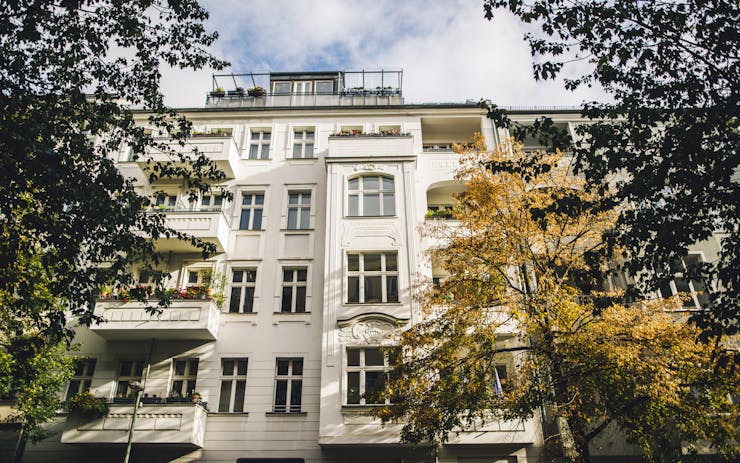Adult-use recreational cannabis is scheduled to be made legal across Canada this summer. But not everyone’s celebrating. As legalization looms nearer, some apartment-dwellers are prepping for legal battles over tenant rights to follow. Not all tenants are looking forward to legalization and are not welcoming to the idea of legalized cannabis being smoked indoors.
With the Cannabis Act, the right to smoke cannabis, will be protected in a tenant’s right to reasonable enjoyment. But that doesn’t mean that landlords can’t impose restrictions.
Steven Lebow is one such tenant. A renter in Toronto, he’s tangled with cannabis-smoking neighbours in his building, who used heavily enough for Lebow to be able to smell the smoke from inside his apartment. (He even complained about getting a secondhand high.)
“It got to point that the cleaning help refused to clean the hallway as the smell was so strong,” Lebow told Leafly, noting that his complaints didn’t bring the results he hoped for.
“I tried with six different property managers over the course of several years,” he said. “Finally a strangely worded notice went out saying that there have been complaints about the odor of marijuana permeating the halls and units and asking if anyone has a medical reason for using it.”
He never got an answer, and it wasn’t until his neighbours moved that the problem was resolved.
If Lebow’s neighbour’s were using cannabis medicinally, that would trump his right to take action. In a situation like Lebow’s, if smoke from an adjacent apartment caused damage or health concerns, he could argue about the reasonable enjoyment of his apartment.
So long as the method of consumption doesn’t present a risk to other tenants or to the building, the landlord’s right to restrict tenant behaviours is limited.
“Your right to do something in your unit even if it’s otherwise lawful extends only as far as it doesn’t have a substantial impact, or to use the legal term, doesn’t substantially interfere with the rights, privileges of the other tenants,” said Tom Halinski, a partner of the Municipal and Land Use Planning Group at Aird Berlis.By “substantial interference,” Halinski means any harm to other tenants or damage to the unit itself.
However, things get trickier when health is involved.
“You could theoretically have the cannabis user who is doing it for medical reasons and a person next door who perhaps has a medical condition that’s being made worse by the [smoke] and that’s tough,” Halinski said. “It would have to be decided on a case-by-case basis.”
Such clashes of rights seem to be a growing concern, as studies have shown that cannabis allergies not only exist but are on the rise. Beyond these are breathing concerns from smoke inhalation, such as asthma or cystic fibrosis.
When the Cannabis Act passes, the right to smoke cannabis, whether recreationally or medicinally, will be protected in a tenant’s right to reasonable enjoyment. But that doesn’t mean that landlords can’t impose restrictions or recommend ways to adapt the apartment.
If there’s concern about smoke damage or harm to other tenants, landlords could suggest tenants use concentrates or other smokeless methods.
“We might suggest, and have suggested, that weather stripping be installed under the door and, if need be, around the door of the complainant so that nothing’s coming in,” said Lesley Larion, a superintendent for a Toronto apartment building. “We accommodate the same requests for people who are offended by cigarette smoke, so I know what way it’s treated.”
Landlords could also restrict the ways in which cannabis can be consumed inside the apartment. If there’s concern about smoke damage or harm to other tenants, landlords could suggest tenants use concentrates or other smokeless methods.
“In principle, that’s not really that different from saying, ‘Yes you can have a dog in your unit, but it has to be walked on a leash,” said Halinski.
But so long as the method of consumption doesn’t present a risk to other tenants or to the building, the landlord’s right to restrict tenant behaviours is limited.
The federal government will be leaving legislation for cannabis and housing to provincial governments to regulate through their own landlord and tenant boards.
Currently the Residential Tenancies Act does not contain specific legislation regarding cannabis or cannabis smoking. However, once the Cannabis Act passes, that could mean that the Landlord Tenant Board could develop new and different rules.
The federal government has not indicated they will be developing any legislation for cannabis and housing, and will be leaving it up to provincial and territorial governments to regulate through their own landlord and tenant boards.
Hamilton is already preparing for these concerns, promising to look at options such as an all-encompassing smoking ban for social housing through CityHousing Hamilton (CHH) by this spring. However, director of operations Ivan Murgic told the CBC that their solution could be as simple as asking any offending tenants to moderate their usage or to avoid smoking on balconies near neighboring windows.
However, in Quebec, landlords are demanding more action from the provincial government and Health Canada. In a meeting with a parliamentary committee, the Corporation of real estate owners of Quebec asked to be able to alter tenant leases to introduce language specific to cannabis. At this time, if landlords want to alter an existing lease, the tenant has a right to refusal and either party can ask the Regie du logement to intervene. Quebec already has restricted permits for at-home growing.





